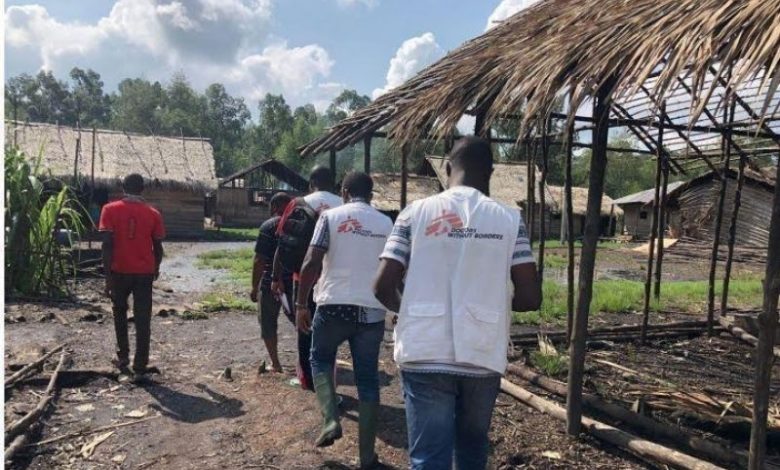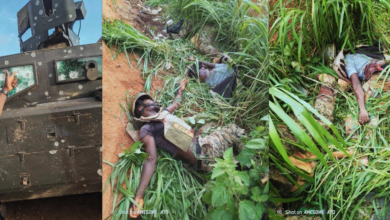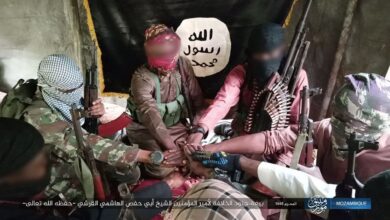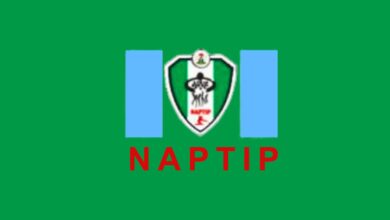Cholera Outbreak: MSF Sends Team to Southwest Cameroon As Cases Rise
The French humanitarian organisation, Medecins Sans Frontieres (MSF) has dispatched medical teams to Ekondo-Titi and Bakassi health districts in the Southwest region of Cameroon where a cholera epidemic has been raging.

The French humanitarian organisation, Medecins Sans Frontieres (MSF) has dispatched medical teams to Ekondo-Titi and Bakassi health districts in the Southwest region of Cameroon where a cholera epidemic has been raging.
Health officials report that since Oct. 27, more than 189 cholera cases have been diagnosed in Ekondo-Titi and Bakassi zones where access to healthcare services is difficult.
The pandemic is compounding the precarious situation for people of the regions.
According to Dr Donatien Tshishimbi, the MSF Medical Coordinator, “The Ekondo Titi Health District has reported over 160 cases of cholera, with 62 patients hospitalised at the Cholera Treatment Unit.”
Dr Tshishimbi said 15 patients were treated at the Oral Rehydration points, and five deaths recorded. “The Bakassi Health district has also reported 29 suspected cases with three deaths from October 27 to November 29,” he said.
He added that the condition has been particularly worrying “because it means that cholera has spread in the community,” adding that the cholera epidemic has been exacerbated by poor living conditions which increase the vulnerability of the people to infectious diseases like cholera.
MSF, also known as Doctors Without Border, says its medical teams have investigated the cholera epidemic, assessed and reinforced case management with a referral system for mild, moderate and severe cases and conducted networking as well as advocacy with community leaders and local authorities.
To prevent this latest epidemic from getting out of control, the organisation is now providing support to the Ekondo Titi and Bakassi Health Districts with case management, referrals, health promotion, and surveillance.
“With Cholera, a patient can lose up to 25 liters of fluid per day. Cholera can cause severe diarrhea and vomiting, and rapidly prove fatal, within hours, if not treated. But cholera is very simple to treat – most patients respond well to oral rehydration salts, which are easy to administer,” MSF revealed.
The NGO says it will use the decentralised model of care to spread treatment to the health district by having community leaders choose members of the community who can manage the Oral Rehydration Salts (ORS) points and refer critically ill patients to the health facilities.
Access to health care centers poses a huge problem in these areas, as most health centers are only reachable by boat. MSF is putting together two cholera treatment centers, one in Bamusso and another in Barack.
“Treatment will be free, and meals and transportation will be provided for all patients referred to these Cholera treatment units (CTU),” an MSF statement revealed.
In 2019, Medecins Sans Frontieres responded to cholera in the Southwest Region of Cameroon, particularly in Bakassi, where 39,000 people were vaccinated, and 230 people were treated at the cholera treatment center.
MSF has been present in Cameroon since 1984. The NGO at the moment conducts humanitarian medical projects in the Far North and Southwest regions of the country.
The organisation is also continuing discussions with the authorities to resume activities in the northwest, after withdrawing its teams following a suspension decided by the authorities in December 2020.
In the far North where MSF has been working since 2012, it supports the Cameroonian health system by facilitating access to medical services, providing surgical, psychological, obstetric, and maternal care.
MSF works in each of these regions according to the health needs assessment of the community. All care provided by MSF is free of charge and carried out in accordance with medical ethics.
Support Our Journalism
There are millions of ordinary people affected by conflict in Africa whose stories are missing in the mainstream media. HumAngle is determined to tell those challenging and under-reported stories, hoping that the people impacted by these conflicts will find the safety and security they deserve.
To ensure that we continue to provide public service coverage, we have a small favour to ask you. We want you to be part of our journalistic endeavour by contributing a token to us.
Your donation will further promote a robust, free, and independent media.
Donate Here




